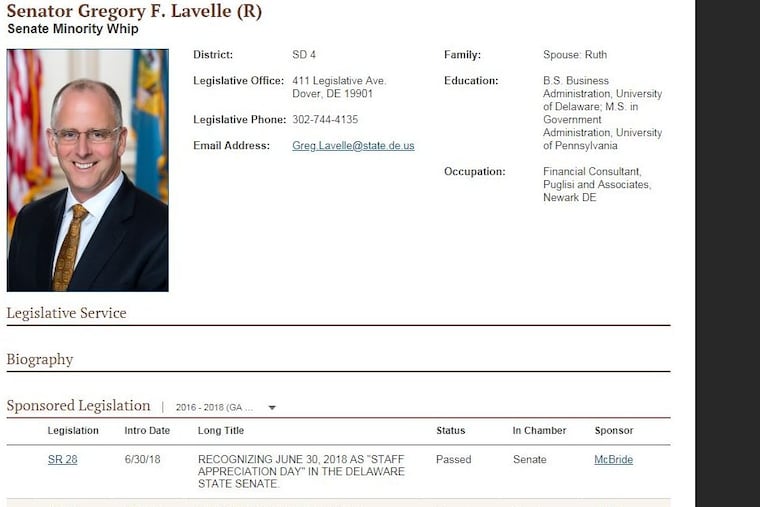Suburban Philly is now the kind of place that elects Democrats
Trump's "political malpractice" seems to have crippled suburban Republicans, but the strategy is popular elsewhere.

The place we raised our kids, like a lot of other farm townships turned commuter suburbs near Philadelphia, had voted Republican since the Civil War. But not now.
Three veteran GOP officeholders who had represented our neighborhood north of the corporate center of Wilmington, Del., since we moved there in the 1990s were all replaced by Democratic women on Tuesday night. The deposed were Republican leaders, with the cooperative public style associated with the party's corporate wing, echoing the once-dominant but now-diminished local DuPont Co. That GOP style is now out of fashion; Republicans who win are often more willing to offend. Like President Trump. But that doesn't play in the suburbs.
Two nights after the election, at a Longwood Gardens dinner for the Chester County Chamber of Business and Industry, retiring State Rep. Harry Lewis (R, Coatesville) spoke to the crowd about families and coaches, but didn't dwell on how his endorsed successor and eight of 10 other Republican candidates in the once solid-GOP county's General Assembly races got beaten Tuesday by Democrats. (In another sign of the times, the other honoree-speaker, former Exelon CEO Denis O'Brien, was heckled briefly by a tweedy protester who yelled "solar power!" until he was led away behind the grapefruit trees.) President Guy Chiarocchi notes business chambers work with both parties.
In our neighborhood, State Sen. Greg Lavelle, leader of the Republicans in the Delaware Senate, the kind of guy who helped kill Democratic gun-control measures by pointing out enforcement absurdities rather than summoning a graybeard militia, sank alongside State Rep. Deborah Hudson, the No. 2 GOP leader in the State House, and New Castle County Councilman Bob Weiner, a veteran leader of the GOP caucus in the state's biggest local government.
The Democrats who beat them are new at this. Sen.-elect Laura Sturgeon is a schoolteacher; Rep.-elect Krista Griffith is a former prosecutor, who stopped me on the street while campaigning so I could meet her kids; Councilwoman-elect Dee Durham is an heiress and preservationist. Weiner complained his opponent was backed by Pennsylvania environmentalists, who said he should have done more to oppose development projects along congested U.S. 202. (They have a right to build on their property, Weiner told me when he stopped by our house.)
Right up 202, through Delaware, Chester, and Montgomery Counties, Tuesday brought a wave of triumphs by Democrats, mostly women, who won what had been safely Republican (and mostly male) territories in Congress and the General Assembly.
Lame-duck U.S. Rep. Ryan Costello (R., Pa.) saw this coming when he declined to run for reelection in his redrawn suburban district. (Democrat Chrissy Houlahan was elected to the new Chester County seat; her neighbors are new U.S. Rep.-elects Madeleine Dean, in Montgomery County, and Mary Gay Scanlon, based in Delaware County.)
A week before the election, Rep. Costello lamented on social media (and in a New Yorker profile) that Trump hadn't fixed more highways instead of waging divisive, theatrical, pointless attacks. He challenged Trump's sudden focus on restricting "birthright citizenship" and scaring voters about immigrants. Costello called Trump's moves "political malpractice" that could only hurt "suburban Rs."
Costello was right, as far as "suburban Rs" go. But Trump and senior Republicans knew what they were doing on a larger playing field. Most U.S. voters aren't college-educated suburban women. Many are older men who don't feel threatened by Trump, who enjoy cheering him on and talking nasty against his favorite targets, pro-wrestling style.
These voters know employers have continued to prosper with Trump's tax cuts. They don't feel a need to trust Democratic claims they will make health care, education, or anything else, more affordable. (So many Democratic candidates are public employees, or work for nonprofits or government contractors: they spend your taxes.) With national Republicans gaining seats in the U.S. Senate, they can now look forward to conservative federal judges going easy on Trump policies and curbing liberals long after Trump is gone.
Outside the suburbs, the election strengthened Trumpism. Consider the contrasting fates of two Republican businessmen who ran for Congress, whom I briefly profiled in this column last May:
Dan David, an independent-minded Republican investment-firm owner who kept some distance from Trump and vowed to vote against him "when he's wrong," polled only 37 percent of the vote, in formerly Republican Montgomery County, against Democrat Dean.
By contrast, up around Scranton, John Chrin, an ex-JPMorgan investment banker who made so much money from forced bank sales during the last recession that he was able to retire at 45, put aside his formerly flexible political principles to embrace Trump's anti-immigrant distractions, and won 45 percent of the vote against Democratic incumbent, Rep. Matt Cartwright.
Trump bombast wasn't enough to unseat Rep. Cartwright, and it didn't help Pennsylvania Trumpists catch Democratic Gov. Tom Wolf or U.S. Sen. Bob Casey, either. But look where a more conciliatory, measured style got suburban Dan David or Greg Lavelle, and you can see Trumpism is what Republicans have that works.
But that will be a strategy for farther upstate (or downstate, in Delaware). In the outer metropolis, among the vinyl-siding split-levels and brick Colonials, shopping strips and winding parks, this feels like the end of an era. We are suddenly the kind of place that elects Democrats.